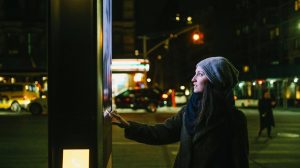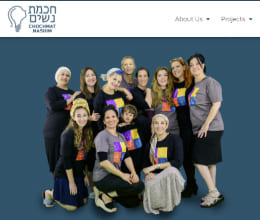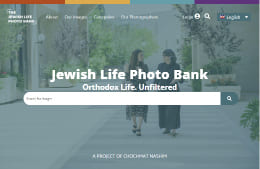
“I didn’t move to Israel to live under the Taliban.”
I said this to the Knesset Committee for the Advancement of Women earlier this week. Under discussion was the naming of 12 streets in a small neighbourhood in the city of Beit Shemesh.
Beit Shemesh lies in the picturesque hills between Tel Aviv and Jerusalem. It started as a development town in the 50s and grew as it absorbed immigrants from Morocco, Belarus, Ethiopia, the US and more. In the past few decades the demographics of the city changed to include some of the most extreme sects of Judaism. Those that see separation of the sexes and “modesty” as perhaps the most important tenet of the faith — to the point of forcing it upon others.
This has caused significant tension among the populations, especially when it comes to signs telling women what to wear and where to walk, as well as the near complete censorship of images of women and girls.There has been violence, men spitting on women (myself included) and even pelting women with rocks.
Two years ago, we elected a female mayor. She won by only 500 votes. When she was elected, I said the blessing “Shecheyanu” and cried, thinking that things had changed for my city where women’s voices had been silenced for so long.
Alas, I was wrong. In most of the city, banks, stores, and even health clinics do not show images of women. The official newspaper of the city blurs women’s images, even that of the mayor.
Of course, it’s not really about modesty. It is a turf war. Extremists use modesty signs and censorship of women’s images to delineate territory. It keeps out the unsavoury and this brings us to the street signs.
Of all of the building happening in Beit Shemesh (and there is much building) only one neighbourhood is earmarked for the general public, and not for the Strictly Orthodox. It was suggested by the Likud political party that instead of names of the month, the streets should be named after heroes and heroines of Israel, among them Hannah Senesh, Roi Klein, Anne Frank z”l and more.
The Charedi parties objected to women’s names being on the signs, as well as those of the heroes of the Zionism they reject. Instead of telling the parties that their objection was unfounded and the neighborhood had the right to have the streets named for Jewish and IDF heroes, the mayor chose to use last names or other euphemism for the heroes (for example “The Brothers” instead of Uriel and Eliraz Peretz, “Frank”, instead of Anne Frank, and “Yonatan” instead of Yonatan Netanyahu).
The media got wind of this and, well, Beit Shemesh was once again in the news, thus prompting the Knesset meeting.
I told those at the meeting that for years Beit Shemesh has been left to fester with bullies controlling the city. At the meeting, MK Moshe Arbel of Shas (the Sephardi Charedi party) said the mayor achieved a “miracle” in naming streets after Zionist women — a miracle — even if the women’s names were in tiny letters or not there at all.
Let that sink in. The new normal is that it is considered a “miracle” to have streets named for female heroes in some places in Israel.
Which is how I found myself telling the Knesset committee that I did not move here to live under the Taliban. A society in which it is commonplace to erase and deface women is not a Jewish one.
While the extreme examples of erasing women get headlines, women live the consequences of being erased every day. When women cannot advertise with their faces as men do, their businesses suffer. When women’s bodies and faces are considered lurid sexual objects, and diseases such as breast cancer are not called by name, women’s health suffers. And when women are not allowed to run for office, such as in both Charedi political parties, women’s representation suffers.
Funny that Shas MK Arbel (who is listed as a committee member) was very happy to come and speak in praise of the “miracle,” but, like all other Charedi MKs, he can’t be bothered to attend committee meetings on women’s health or domestic violence. (He acknowledged his frequent absences at the beginning of the meeting.)
The erasure of women began in insular communities but has now become a normalised position. We give it credence when we support publications that do it. We legitimise it when we don’t object to women being unable to represent themselves and the entire community suffers as a result. The arenas from which women are removed are increasing; and friends, we simply cannot rely on miracles.
Originally published in The Jewish Chronicle


